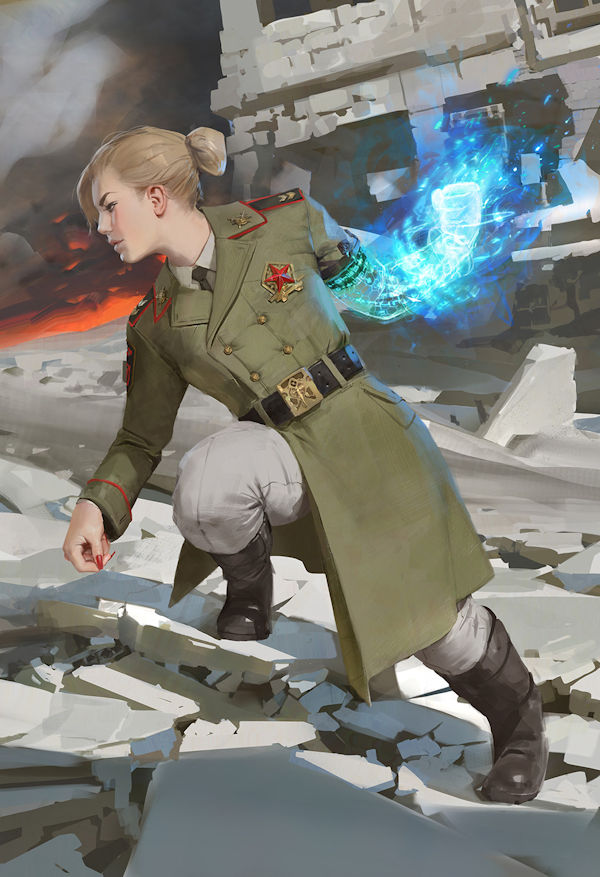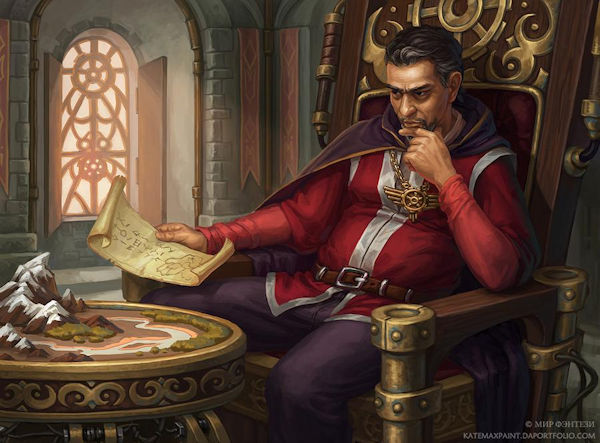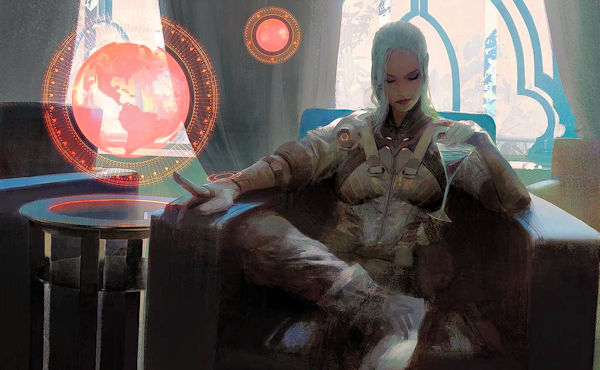 What will a
character do next? What can they do next? These are the questions that drive
the narrative of a story forward and determine what direction it will follow.
While they may follow a greater plot arc, the best characters have agency of
their own that directs their narrative. Character agency is usually defined as
the ability of a character to interact with/influence the world of the story
with their choices and actions. It’s made up of a combination of factors like
their motivations, goals, nature and abilities that all combine to influence
how and what character will do.
What will a
character do next? What can they do next? These are the questions that drive
the narrative of a story forward and determine what direction it will follow.
While they may follow a greater plot arc, the best characters have agency of
their own that directs their narrative. Character agency is usually defined as
the ability of a character to interact with/influence the world of the story
with their choices and actions. It’s made up of a combination of factors like
their motivations, goals, nature and abilities that all combine to influence
how and what character will do.
Like any aspect of writing, the level of character agency is dictated by the author, some writers require their characters to follow a set path, while others opt for more character driven narratives. Some characters are written with considerable potential to influence the world, and thus have greater effective agency whatever their choices, like a protagonist who is an important political leader or king. While others might have little practical agency in their situation, as in comparing the ability of a child to influence the world with an adult—though as we’ll see this can be worked around within the story.
The level of practical agency a character possesses will have obvious effects on the story, it will in part determine possible actions and sculpt their responses to situations, for example how an elderly professor might deal with a mugging compared to a former army drill sergeant. The list of potential responses will be different in a physical confrontation as the drill sergeant will be much better prepared and able to affect the world (unless your story happens to have a badass ninja professor for some reason). Agency is not limited to personal power of the character, a farmer whose daughter has been kidnapped might take up his pitchfork and put his brawny arms to work hunting down the kidnappers themselves, but an effete noble lord might dispatch men at arms or hire an army of mercenaries to retrieve his child.
While the author is always free to direct the story however they choose, aspects of character construction and their agency will nudge the narrative in certain directions, and ignoring them could make the writing seem less plausible and coherent. If the effete noble were to take up a sword and go after his daughter it might make for a good story if done well, or written as a comedy, but it does go against the grain of the character’s nature. All characters need to fit the decisions they make, they cannot simply take an action because the plot requires them too. The author would have to come up with a compelling reason why he wouldn’t use the resources at his disposal, otherwise it would seem as if the character lacks any agency and is merely being shoehorned into the plot.
And speaking of resources, the agency and ability of the character to affect the world of the story must be balanced against the obstacles and sources of conflict in order to create a compelling narrative. For the farmer, a couple of bandit kidnappers might pose enough of a challenge to make a good story, but for the effete noble a larger threat like an inter-kingdom smuggling ring with ties to the corrupt royal family might be needed to pose a challenge for the resources he can bring to bear. Story arises from the level of agency a character possesses vs. the resistance of the world to their goals. If they can achieve their aims too easily with the abilities they possess, then there is little opportunity for conflict and drama.
This is something that must be considered in character construction, as well as in regards to the type of story you are trying to tell. A dynamic, action-focused story might feature a powerful hero protagonist with lots of agency who will meet the deadly villains head on, but for this to work the villains must have an equal/greater level of power, or some other edge. Think about how Superman stories are crafted, the lengths a writer must go to in order to create a worthy foe to combat, or else use methods like hostages or kryptonite weaknesses to ensure conflict balance.
Not that there always has to be balance per se, people love an underdog and many stories pit their characters against awesome foes and catastrophic problems. Characters can reveal their agency in other ways even if they are outmatched by the forces they face. Frodo from The Lord of the Rings is a perfect example in that despite his apparent lack of prowess and ability to affect the world, especially when measured against other members of the fellowship, he still manages to perform a pivotal, world changing task in the destruction of Sauron. However, because of his nature there is little chance of him donning a suit of armour and squaring up to the dark lord in a cage match, instead of a story building to a title fight, Frodo has a quest narrative that pits his determination and ingenuity against a series of obstacles from deadly swamps to giant spiders.
All aspects of character construction and story interrelate, changing one can easily affect another. Tweaking an aspect of a character and their abilities can change the whole nature of a narrative arc even in the same story. If a novel was about taking down a corrupt politician and your protagonist was an ex solider, then get ready for a bloody tale of action and revenge. Yet if you took the same novel and made the protagonist a con man then your story would play out more like a spy caper with the protagonist stealing and publishing some damming evidence. Both characters can have agency in the novel, making choices that affect the plot, yet their methodology would vary given the differences in their character construction.
This is why it’s so important to wed character and story together, so their nature and level of agency is appropriate. It’s hard to show Superman afraid so such a character wouldn’t be a good choice for a horror story where the book relies on threatening the protagonist. It can even be a lack of agency that forms one of the primary sources of conflict in a book. For example in a children’s story about a small child taking care of an alien that crashed by their house, much of the drama in such a novel could come from the child trying to help/keep the alien a secret despite school, bedtimes and an inability to reach the top shelf.
Agency helps determine what kind of stories can arise within the narrative, not necessarily by imposing limits, but by directing the story arc in a manner consistent with the characterisation. Indeed, you can still create a story even if your characters have virtually no limits. Michael Moorcock’s The Dancers at the End of Time is a book about immortal beings of the far future that possess god-like powers thanks to their advanced technology. Given that their fantasies can become real with a wave of their hand, I did wonder what sort of plot could develop in such a novel. What could these characters strive for when their grandest desires could be made real with a thought and twist of a power ring?
Yet despite such abilities Moorcock was able to craft an intelligent story as the immortal Jherek tries to win the heart of a time traveller from the past. It features trials and conflicts even for a godlike protagonist as the story focuses on the growing relationship between the two. Jherek’s struggles aren’t typically against some external force, but boredom and ennui, his limitations aren’t physical, but social as he interacts with the other immortals, and his triumph is new experience as he discovers the rush of theft as a novelty, or a depth of feeling for Amelia. Of course this type of story is not suitable for everyone, but it does show the possibilities, even when your character has immense agency in his ability to affect the world, they still follow a coherent narrative, making choices and driving the plot, while suffering conflict that makes a story compelling.
Character agency is a broad topic, I haven’t even touched on when the agency of different characters competes, or how a character might gain greater agency through changing circumstances or abilities—nobody say, “chosen farm boy.” But an understanding of how your characters move through the story is important in writing a structured narrative that flows well and makes sense in terms of the character’s nature. When constructing a character an author should be aware of their potential level of agency, what it means for the story and what choices it will offer them. In essence, it’s down to the intent of the author and what kind of book they’re looking to write. So, whatever your story arc, make sure the character can hack it.
Title image by Mingchen Shen.



